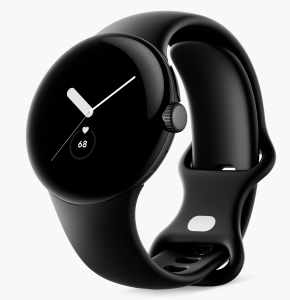
I go for an annual checkup where a nurse checks my blood pressure, my oxygen saturation (Sp02), my weight, height and body temperature, followed by an exam and chat with my doctor.
It’s an important ritual that I never miss. Getting these checkups and the advice of a seasoned medical professional goes a long way toward keeping me healthy and dealing with any potential medical issues.
But it’s only a snapshot in time. Blood pressure, for example, can vary minute to minute, let alone hours or days later, which is why it’s important to take it at home periodically to see how it is over time rather than just once a year. The same is true with many other measurements. Even an electrocardiogram, which isn’t done routinely, can be normal one day and abnormal another day.
And that’s where wearable and home tech, including smartwatches, fitness bands, blood pressure monitors, portable EKG monitors and pulse oximeters can help.
I’m not suggesting that everyone needs to monitor their vitals every day, but for some, having real-time data can be life saving. For others, it can be reassuring.
Wccftech reported the case of a 29-year-old who “was awoken from her nap when the smartwatch kept on sending alerts, attempting to gain her attention of a high heart rate of 178 beats per minute.” That prompted her to seek medical attention where she learned “she had a potentially deadly blood clot, which would have been life-threatening had she not received medical attention at the right time.”
I’ve heard of other cases of people wearing smartwatches being informed of atrial fibrillation (Afib) or an abnormal EKG that required medical attention. I know of a fellow tech journalist who claims that his Apple Watch saved his life. In addition to health monitoring, some models of Apple, Google and Samsung watches have detectors that can alert first responders if you fall or are involved in a car crash.
I wear a somewhat similar Pixel Watch, and before that, a Fitbit Sense, which, among other things, allows me to take an EKG any time and check my SP02 while I’m sleeping. Both also look for an excessively high or low pulse rate, which can be a sign of a medical problem. The Sense 2 and some other devices also look for signs of Afib.
There is data suggesting that these devices can make a difference. A Review of Wearable Devices and Data Collection Considerations for Connected Health from the peer reviewed Journal of Medical Internet Research, found that “wearables collecting data throughout the day may provide a richer data set than snapshot reading records obtained during visits to a health care facility. Such data may be collected more readily around individuals’ normal daily activities, whether at rest or on exertion, which may be useful for heart rate readings, for example.” It also concludes that “wearables may facilitate behavior change and potentially motivate patients to exercise, whether through daily step challenges, goal setting, or otherwise.”
Many of these devices also monitor your sleep, reporting such things as how long you were in bed, how long you actually slept and your various stages of sleep. Several devices, including some Fitbit, Google Nest Hub (which sits by your bed) and smart beds like the Tempur-pedic with SleepTracker-AI, will also show you when and how often you snored, which, in addition to annoying a bed partner, can be a sign of sleep apnea, a potentially serious medical condition.
Not a substitute for a doctor
Since I mentioned potentially serious medical conditions, this is a good time for an important caveat. As Fitbit discloses when it reports things, “this feature is not intended to diagnose or treat any medical condition and should not be relied on for medical purposes.” After testing numerous devices, including some at the same time, I’ve learned that they are not always consistent. Although they can provide some important trends, they are not necessarily accurate on a given day or night. When they report something concerning, that’s a good reason to follow up with a medical professional, but it doesn’t necessarily mean that you have a serious medical condition. Likewise, when they don’t show any problems or imply that you are fit, that doesn’t rule out potential problems.
There is also the danger of being overly obsessed with data. Frequently checking and worrying about whatever data is being reported by your smartwatch or other device can cause anxiety, which can lead to some of the very problems you’re trying to avoid. It’s a balancing act. You want to know if something is wrong, but you don’t want to be in a constant state of worry about your health.
In a 2018 interview, Dr. David Albert, who is the inventor of the KardiaMobile portable EKG monitor, admitted that his device isn’t for everyone but mostly aimed at people who have already been determined to be at risk for heart problems.
Even things like step or distance counting, which is a feature of almost all fitness bands and smartwatches, can be a bit obsessive. I do use my smartwatch to measure how many steps I take each day and how long I exercise on my bicycle or elliptical, but I really don’t need a smartwatch to know roughly how far I’ve walked. I can measure that in other ways, including just keeping track of time or sticking to a measured route. My elliptical has a timer on it, which is more than adequate for measuring how long I’ve used it, and like a lot of fitness devices, it can also track pulse rate.
Still, even though I don’t need a smartwatch to tell me that exercise is important, getting that daily score, including a notice when I’ve walked 10,000 steps, is a motivator.
Larry Magid is a tech journalist and internet safety activist.